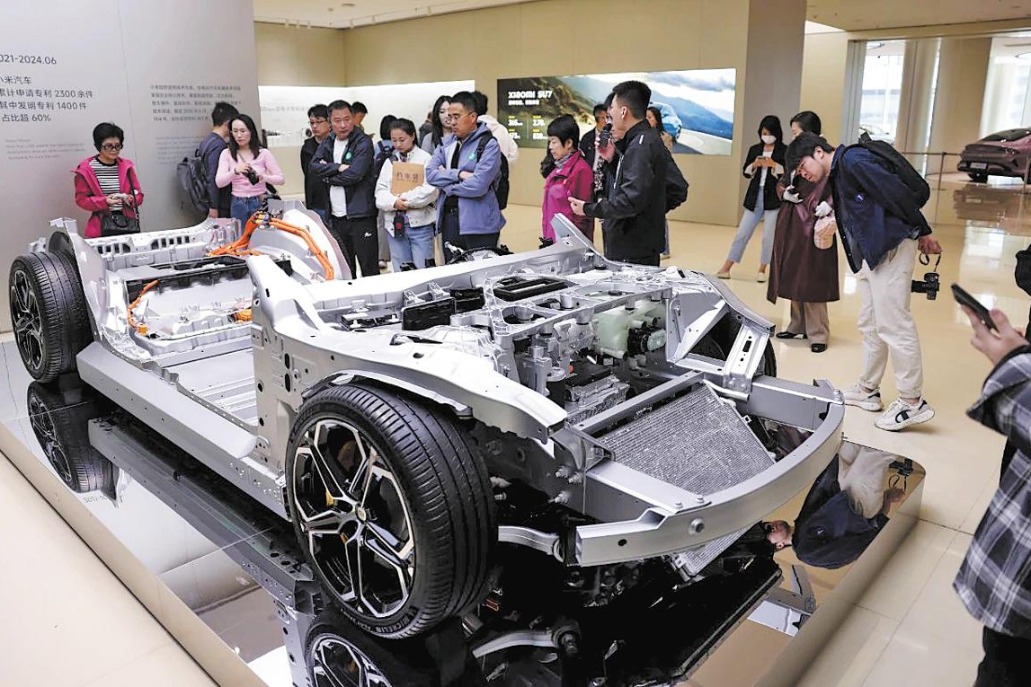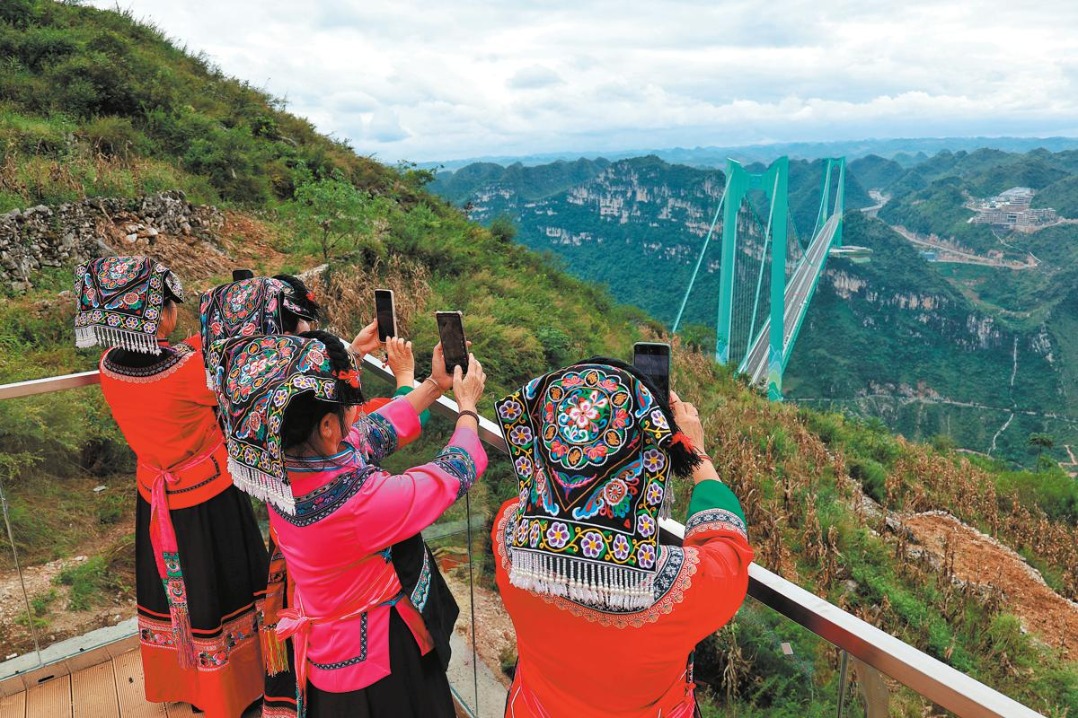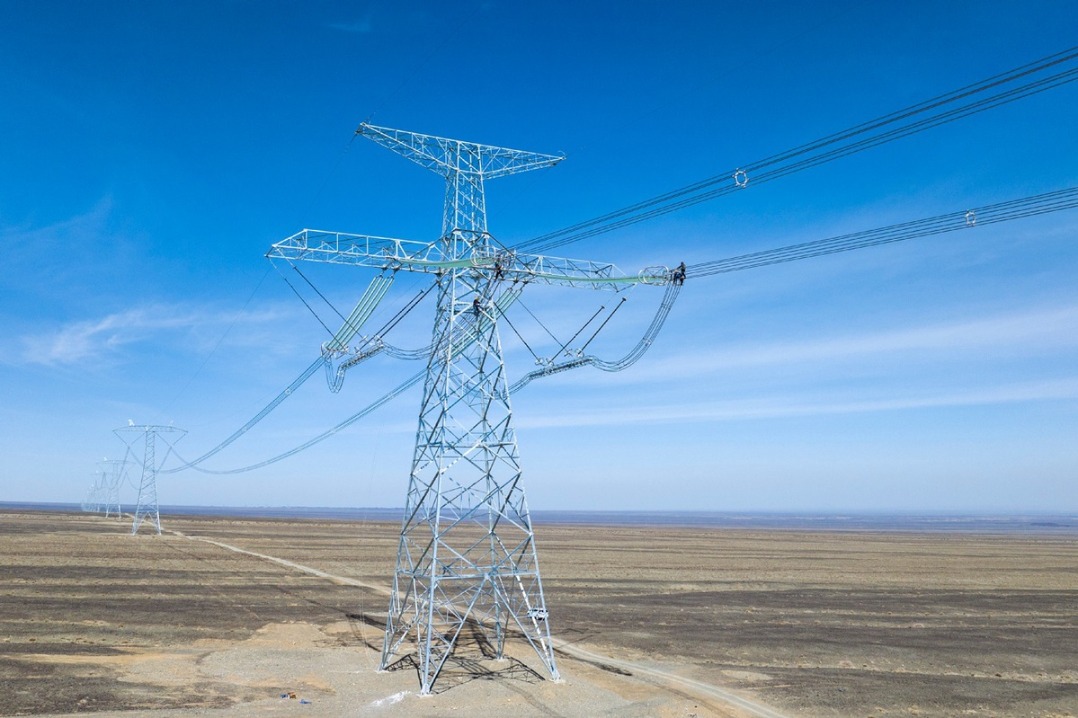CPC Guidelines for Governing Xinjiang in the New Era: Practice and Achievements
The State Council Information Office of the People's Republic of China September 2025

VI. Further Progress in Democracy and the Rule of Law
Whole-process people's democracy is the defining feature of socialist democracy; it is democracy in its most extensive, genuine and effective form. Acting on this key concept, Xinjiang is committed to the unity of CPC's leadership, the people's position as masters of the country, and law-based governance, and guarantees the implementation of the people's congress system, the system of CPC-led multiparty cooperation and political consultation, the system of regional ethnic autonomy, and the system of community-level self-governance. It has made new strides in advancing democracy and the rule of law.
Remarkable achievements in developing whole-process people's democracy. By practicing democracy throughout the whole process of elections, consultations, decision-making, administration, and oversight, Xinjiang has continued to improve the institutional framework for whole-process people's democracy.
The people's congress system serves as a fundamental institutional pillar of whole-process people's democracy. As of 2024, a total of 74,412 people were serving as deputies to people's congresses at all levels in Xinjiang. Among them, 78.69 percent were from the grassroots level, and 69.21 percent were from ethnic minority groups. This composition demonstrates that the people of Xinjiang enjoy an equal status in political affairs, irrespective of ethnic or social background.
Consultative democracy is an important form of whole-process people's democracy in practice. As of 2024, Xinjiang had 16,121 members serving on its CPPCC committees at all levels, with 49.06 percent of non-CPC members and 46.13 percent of members from ethnic minority groups. These figures underscore the broad representation and political inclusiveness of the CPPCC system.
Primary-level democracy is a key manifestation of whole-process people's democracy. The system of community-level self-governance has been established for all villages and communities across Xinjiang. Over 85 percent of the matters for decision-making at grassroots self-governance organizations come from public proposals, demonstrating the authenticity of primary-level democracy and its extensive coverage and effectiveness.
The united front is a powerful force in advancing whole-process people's democracy. Xinjiang coordinates efforts to unite members of non-CPC political parties, prominent individuals without party affiliation, non-CPC intellectuals, and businesspeople working in the non-public sector, building extensive consensus.
Democratic oversight is an integral component of whole-process people's democracy. People's congresses at all levels in Xinjiang and their standing committees are continuing to improve their scrutiny of the people's governments, supervision commissions, people's courts, and people's procuratorates at the same level in performing their statutory duties. CPPCC committees at all levels in Xinjiang exercise consultative supervision by expressing views, making criticisms, and giving advice to ensure the legitimate rights and interests of the people of all ethnic groups are protected and realized.
Evident strengths of the system of regional ethnic autonomy. By upholding national unity while practicing regional autonomy, and by leveraging regional features while highlighting its multiethnic composition, Xinjiang fully protects the right of all ethnic groups to jointly administer state affairs as masters of the country.
Xinjiang Uygur Autonomous Region has autonomous areas at all three levels — regional, prefectural, and county level. It has five autonomous prefectures and six autonomous counties, all of which enjoy extensive autonomy as prescribed by law. On all standing committees of people's congresses of ethnic autonomous areas, there are citizens from the ethnic groups exercising autonomy holding the office of chair or vice chair. The chair of the autonomous region, the governors of autonomous prefectures, and the heads of autonomous counties are all citizens from the local ethnic groups exercising regional autonomy.
The people of all ethnic groups have equal legal status, enjoying the right to vote and stand for election, as endowed by the Constitution and the law. They enjoy freedom of religious belief, and have the rights to participate in the administration of state affairs, to receive education, to use and develop their own spoken and written languages, and to preserve and protect the fine traditional culture of their own groups.
Xinjiang respects and protects ethnic minorities' right to learn and use their own spoken and written languages, takes a sound approach to protecting the spoken and written languages of all ethnic groups, and encourages them to learn languages from each other.
Important advancements in the rule of law. To fully implement the CPC Central Committee's decisions and plans on law-based governance, Xinjiang has actively promoted the rule of law within the government and across society. It respects human rights and ensures its protection throughout the process of legislation, law enforcement, judicature, and law observance, so that the people can see justice served in every law, every enforcement action, and every judicial ruling.
Xinjiang exercises its local legislative powers in accordance with the law. By the end of 2024, the People's Congress of Xinjiang Uygur Autonomous Region and its Standing Committee had formulated, revised and approved 874 local regulations, resolutions and decisions with regulatory functions or on major issues, and special ordinances. Among them, currently in effect are 175 local regulations and 56 resolutions and decisions with regulatory functions or on major issues. They have laid a solid legal foundation for maintaining local social stability and lasting peace and security.
Xinjiang actively promotes democratic legislation. It has established two grassroots legislative outreach offices at the national level, 23 at the autonomous region level, and 112 at the city level, to extensively solicit public opinions and suggestions on legislative work.
Xinjiang strives to build a law-based government. Over 500,000 pieces of information on law enforcement were made known to the public by the administrative law enforcement departments at all levels, and law enforcement supervision and inspection were conducted on more than 2,100 occasions.
Continuous efforts have been made to strengthen community-level legal systems. Judicial offices have been established for townships and urban sub-districts, and people's mediation committees have been set up for villages and communities, both of which serve as legal counsels for ordinary people. A public legal service system is now in place to cover both urban and rural populations.
Law-based governance of foreign-related affairs has been elevated to a new level. The Standing Committee of the People's Congress of Xinjiang Uygur Autonomous Region has revised the regulations on border administration and released the Regulations on China (Xinjiang) Pilot Free Trade Zone, to build Xinjiang into a core area of the Silk Road Economic Belt.
Greater protection of human rights. Respecting and protecting human rights is a constitutional principle in China. Comprehensive progress in human rights is an ongoing quest of all ethnic groups in Xinjiang and all Chinese people. The CPC Central Committee with Xi Jinping at its core has integrated this principle into the Party's guidelines for governing Xinjiang in the new era, and made vigorous and solid efforts to protect the basic rights of the people of all ethnic groups in the region.
Adopting a people-centered view of human rights, Xinjiang has made the improvement of people's lives the ultimate goal of all its work. It has maintained social harmony and stability in accordance with the law, accelerated the pace of high-quality development, ensured and improved living standards, developed and consolidated ethnic unity, protected the freedom of religious belief by law, and attached importance to the protection and preservation of the fine traditional culture of all ethnic groups. The rights to subsistence and development of all ethnic groups in Xinjiang are effectively guaranteed, and their political, economic, social, cultural, environmental and other rights are fully realized.
Unprecedented progress has been made in Xinjiang's human rights cause, owing to multiple factors. The Chinese socialist system offers a strong institutional guarantee, China's high-quality economic and social development lays a solid material foundation, and sustained social stability has created favorable conditions for its development.



































